Arrival press conference with Amy Adams and Jeremy Renner
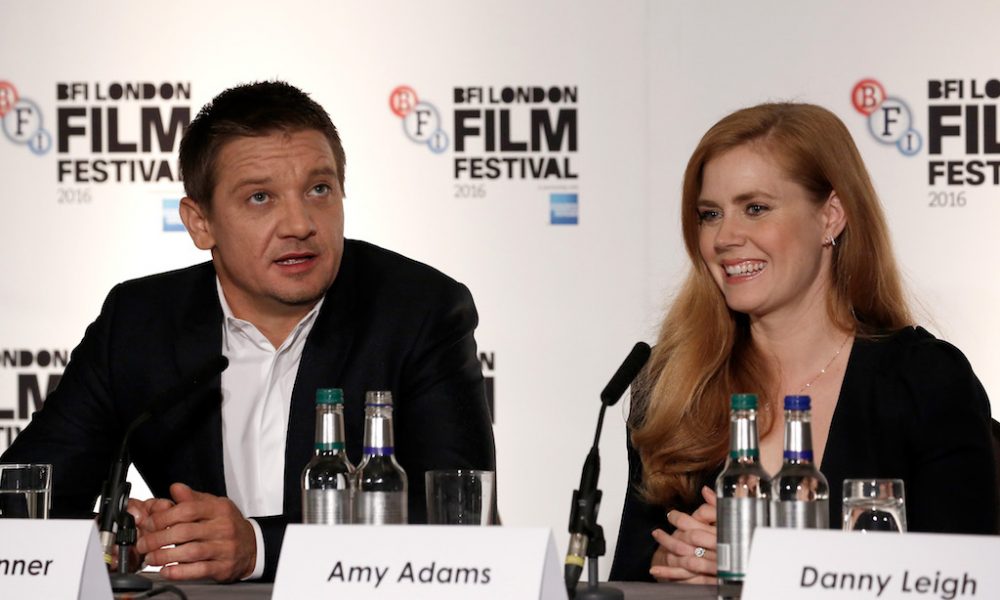
Promoting the release of Arrival, Amy Adams and Jeremy Renner, the stars of Denis Villeneuve’s new sci-fi movie which has been met with rave reviews, discuss what made them want to work on the film, the challenges of playing their characters, and the importance of tolerance and compassion – in the feature and also in our world today.
What attracted you to the script? Did you know you wanted to work on it straight away or did you need to take your time with it?
Amy Adams: I realised very quickly, just by the way that it opens. The first five minutes of something usually makes me decide whether or not I’m going to like a script and this one begged me to keep going. And when I got to the end of it I had to go back and read it again, knowing what I knew.
What about for you Jeremy? This is not a normal alien movie after all.
Jeremy Renner: No, it’s not by any means. To me it didn’t read like an alien movie at all, I didn’t even wonder what the aliens were like. It’s a story told through Amy’s character’s eyes. I didn’t even really think about it until I got to the end and thought “I got to reread this thing”. And then what Denis does with the movie is make it this big, giant, beautiful, global film and to me, a really beautiful, moving drama.
Amy, Louise is a phenomenally intelligent character – how rare is it and how pleased were you to find this kind of female character at the centre of the movie?
AA: Well I think sometimes females are written as if they’re smart in the description but then not given anything smart to do or say! So the fact that she gets to be smart, not just act smart is awesome. Also, the fact that she’s acting not only with her intelligence, which is required of her, but also with her instinctive intelligence really appealed to me. That was fun to get to play.
Another big part of the character is motherhood, was that something you had a particular connection with?
AA: Absolutely. When I spoke with Denis that was the thing that let me know he was on the same page as me; he saw what I saw in the script. We talked about a bunch of other stuff and at the end of the day he just said, ‘This is a story about a mother, you start the film by speaking to your daughter’, and that caught me. So I knew he was going to protect the story, and that’s what’s important to me.
Jeremy you’ve played superheroes before but not a physicist – how was that for you?
JR: Well you know, there was a challenge to it because it’s information that’s really not that interesting – zeros and ones, theorems, things like that. So I think the greatest challenge was working out how do I make this guy interesting? How do I, first of all, understand the material and then secondly pass that onto the audience without losing them with the boring zeros and ones, all the binary. So we thought, maybe we make this guy funny, or at least give him a sense of humour. Richard Dreyfuss from Jaws came to mind because that guy just loves sharks and I thought maybe I could draw on that with this guy’s love for alien and extraterrestrial life. But yeah that was the main challenge, making this guy accessible, and emotionally available.
What about you Amy, did you know much about linguistics before starting on this film?
AA: I did not, I’d previously thought it was like being a translator, or somebody who just knew a lot of languages, and when I spoke to the linguist she said actually no I’m not an interpreter or translator. She said she studies the cultures around the languages and how the language is formed and processed. Once it became anthropologically and sociologically relevant I felt I could really identify with that part of the character. So much of linguistics is mathematical, that’s how you break down the language, and that’s just not my millhouse, at all. The zeros and ones – just not going to happen! But the rest of it really spoke to me.
One of the things, as a viewer, which is so extraordinary is that the film has a strange sense of calmness and grace. Movie sets aren’t known for their calmness – what was the set like?
JR: It really was very peaceful, so quiet. It was weird. So quiet and contained.
AA: And so civil. I don’t normally bring my daughter to set because I think sets are generally places for grown-ups.
JR: We both brought our kids.
AA: Yeah I brought my daughter, she’s very quiet, and would hang out. It was just so calm, and very lovely.
In terms of working with Denis, how familiar with his films were you? Was the attraction the script, or Denis?
AA: Well it started as the script. I wasn’t very familiar with his work before reading it. I signed onto this when he still had films to be released – he had Sicario and this and he was deciding which one to do first – so it was quite some time ago.
JR: That long ago? Wow.
AA:Yeah I agreed to do it when I met him. Usually I go and talk to people about it, but here I kind of gave him my word, I was like ‘We’re going to do this, I don’t know when or how, but we’re going to do it’. And I’m so happy to be here now!
Jeremy, how about you?
JR: I was very familiar with Denis’s work, I’ve seen all of his films, and I was almost a part of Prisoners, so I was obviously very impressed with him as a filmmaker. When it came to meeting him he’s just a charming, lovely, smart, emotionally intelligent dude. But I mainly did the movie because of my relationship with Amy. I thought the story was great and I thought it was a great role for her. It’s roles like hers which are lacking in Hollywood for actresses of this caliber, women often just get victim roles. It’s a fantastic script which shows the leading woman as smart, and as a superhero! She saves the world, and I think that’s just a fantastic thing. She can get you down with just being a woman – she’s compassionate, and tolerant. When I think about what separates men from women it’s that compassionate gene.
The Heptapods have this incredible physical presence in the movie, and how you interact with them is so important. When you were filming did you know what Denis actually had in mind for their visual look?
JR: Yeah we kind of knew they were like squid-looking things, and really big like elephants.
AA: Yeah he was like “you see them come high up on the screen” [imitating French-Canadian accent] – Denis has this great accent and I love to do it. But yeah there were puppeteers who stood behind the screen and ran around as directed.
How did you prepare for your roles? And how did you get into character on set?
AA: Preparation is so individual, and you have conversations with the director, but a lot of the work I do is done privately sometimes months before work starts. I don’t like to talk about it lots because it’s very long-winded and you’ll get very bored. So it’s very detailed. And then getting into character, it was weird because I knew I was where I needed to be to play Louise when I started getting a stomachache; I had it all over summer!
JR: Yeah it’s different for everyone, and every movie. For me here it was working with the director and trying to find an entry point into this guy and make him more than just his job, coming up with a way to humanise him because we had to steer away from a lot of stuff, but still make him a human being and not have him be socially inept because he’s all math. And then you just take it day by day, learn and grow.
The film is interesting in this moment in time. Given the suggested politics of the movie, did you discuss that on set, or have the upcoming election in mind?
AA: I don’t think anybody had this election in mind [laughter]. The politics were kind of implied in the script, and because of what’s going on now that kind of pops out of the film. But it’s been a year and three months since we finished filming and the world is a very different place now. But no, it’s not something we discussed at length. Denis may have acknowledged it with his other filmmakers, but not with us.
Amy, what did you enjoy most about playing such a smart woman?
AA: There are so many things! One of things, it sounds so base, was feeling ok to just roll out of bed in the morning and go to work. There were times when Denis was like “less less less”. I’ve played roles where I’ve lost my vanity before but this one was different because she was so intelligent and imagining this as a woman without vanity was incredibly freeing to me. A lot of my characters have had some of the innate vanity we all have as human beings, but she really didn’t and that was really freeing, very refreshing, for me.
What was Denis’s method like? Did he let you ad lib on the screenplay, did you rehearse?
AA: I read through the script with Denis.
JR: I didn’t. And we didn’t really rehearse. Denis is very loose and free, he’s very Kubrick-like in his style with his cranes and his shots. But when he’s shooting he’s actually very focused what he’s doing, and her beautiful face, and what’s going on in her brain.
AA: Keep ‘em coming!
JR: So yeah I felt like there was always a lot of room for growth. We were on the same team together, it wasn’t just his movie. He was focused on how to shoot it, but we didn’t care about that, we were just trying to be the characters and tell the truth and keep going. He was also very integral to that process as well. There was a lot of freedom in his own way, in his own terrible broken English, but he’s a wonderful human and an absolute joy to work with.
The film for some has been about being understood – do you have any advice for anyone who is perhaps struggling to accept those who are different?
AA: Wow that’s a big question.
JR: Wow yeah, just practice tolerance you know.
AA: There has to be openness in the beginning of the conversation. There’s a wonderful experiment, I don’t know if you guys saw, where people talked about where they’re from, and they sit opposite each other looking at one another and they discovered that they had something in common that you wouldn’t expect, and I think that’s the most amazing thing, to really look at people and see them as humans and see what we have in common.
JR: Focus on what unites us, not what divides us.
If you could see your whole life from start to finish would you change things?
AA: No. No not at this point.
JR: If I knew? If I had a crystal ball? No. That takes all the fun out of life!
Did the experience of shooting this film make you more curious about other cultures?
JR: I’ve always been a pretty curious dude. What this film really made me focus on was the question of what unites and divides us. I didn’t initially think that was part of the movie, it’s not in the script, but the way that people unite kind of comes out of it. What does unite and divide us? I’ve had many long conversations about it and I think it’s a beautiful conversation to have because it’s about what is human. We all have something in common, and that’s language, it does unite people but it also divides – I don’t speak Italian. Religion – religion does unite a lot of people, but almost every war we’ve had has been because of religion, so there’s lots of division. So what is it that unites us? I don’t care if you’re a cannibal, where you live, where you come from, what language you speak, we all have emotion. That’s something really quite beautiful. Fear, unfortunately, is the most powerful human emotion, I believe, but I think that’s really interesting.
AA: I’ve always been fascinated with other cultures, though I don’t like travelling – I hate flying. But it’s interesting. I came to the film thinking I was going to leave with something and actually what I left with was really about-
JR: -me!
AA: Haha! No it’s the thing that got me into the film in the first place, there’s something Louise says about appreciating the moments in-between. Despite all these great things I get to do as an actress, I think the things that mean the most to me are things like teaching my daughter how to read, those quiet moments, like the ones that are captured in the flash-backs. In that way memory serves as an internal scrapbook, and you have to be present in those moments.
Tess Colley
Photos: John Phillips/Getty Images for BFI
Arrival is released on 10th November 2016, read our review here.

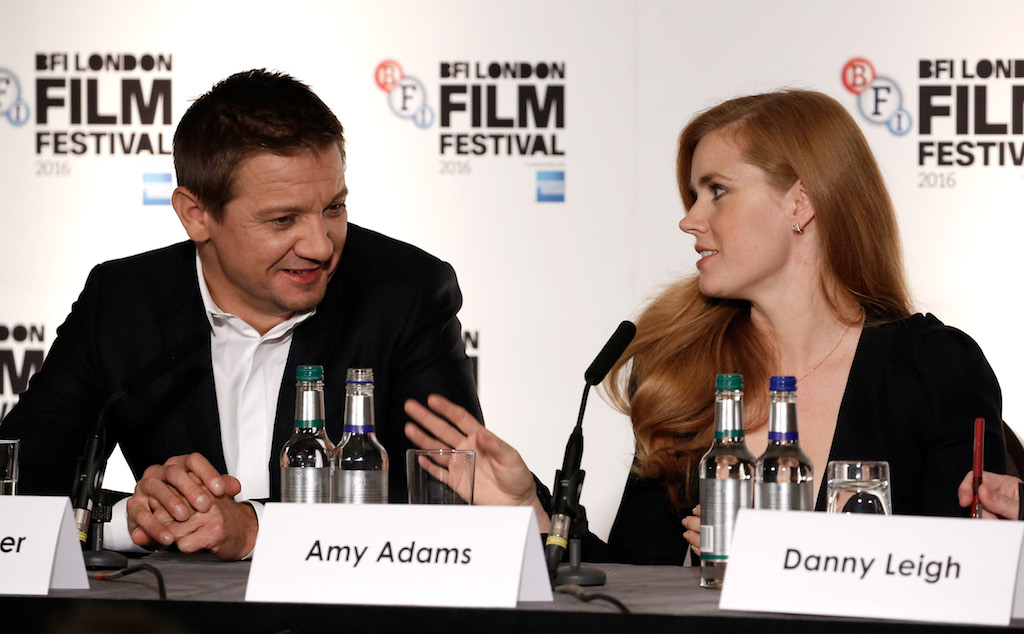
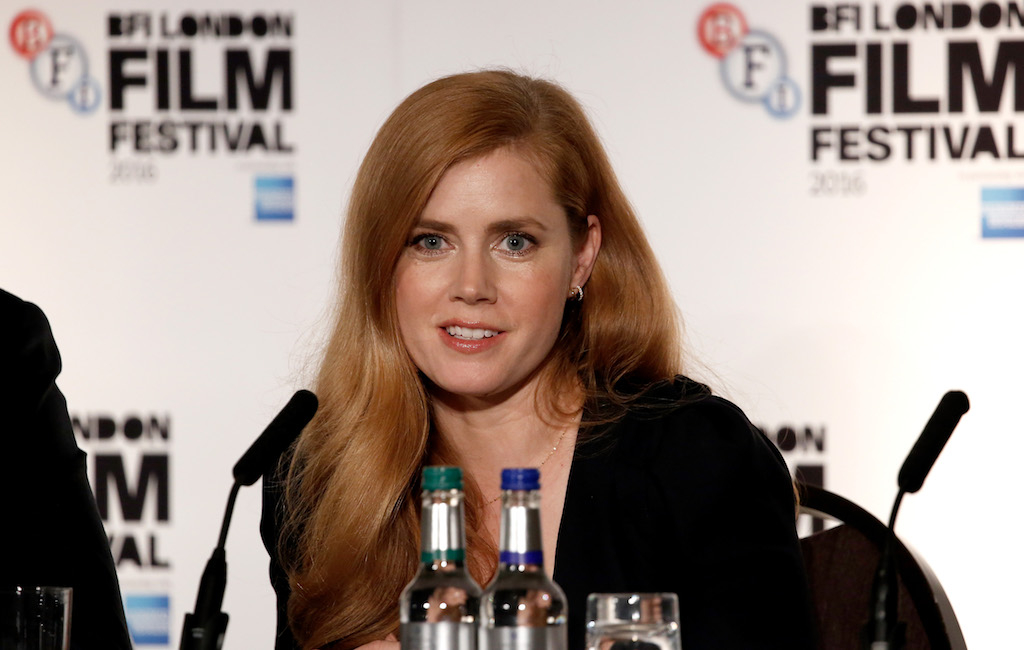
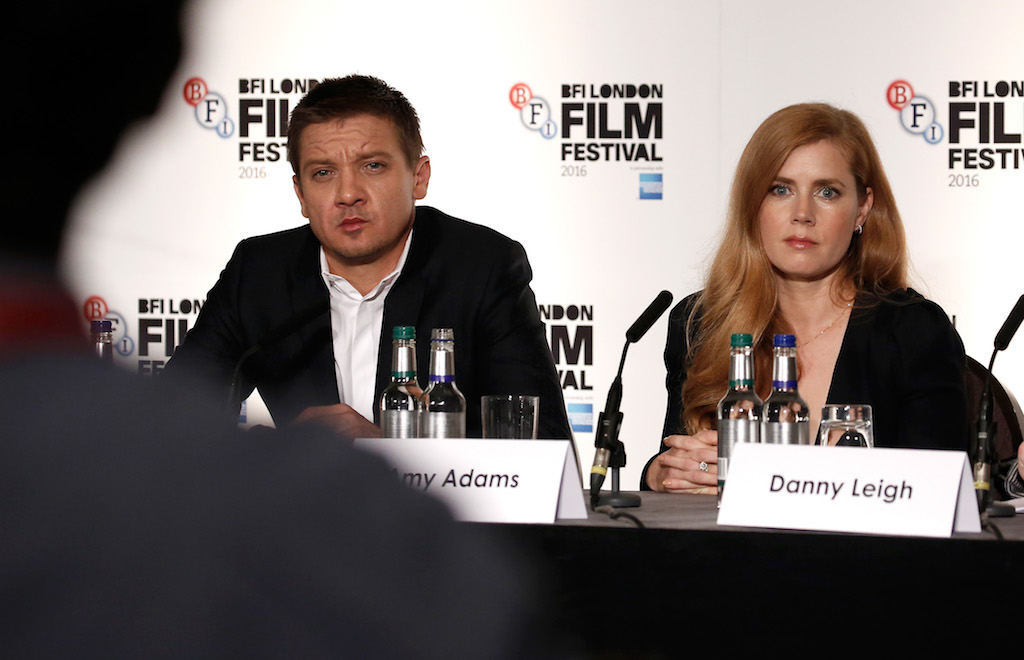
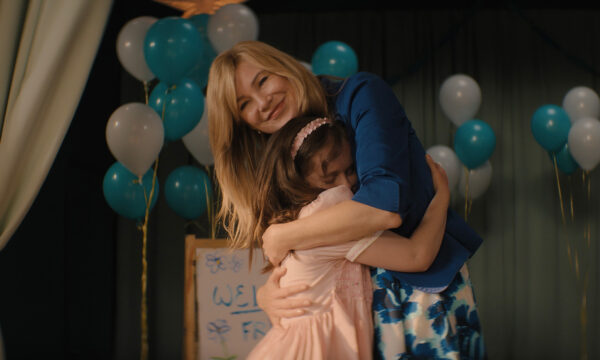
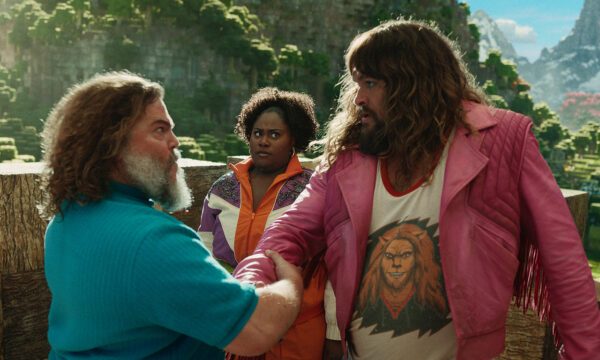
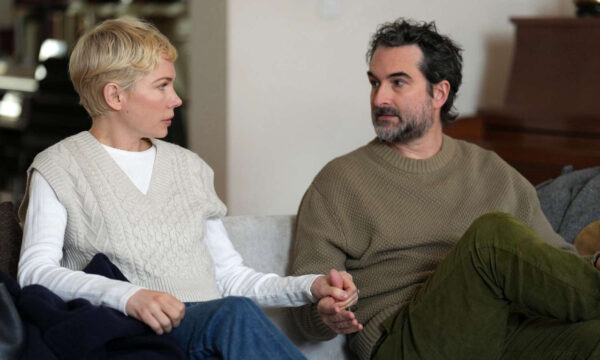
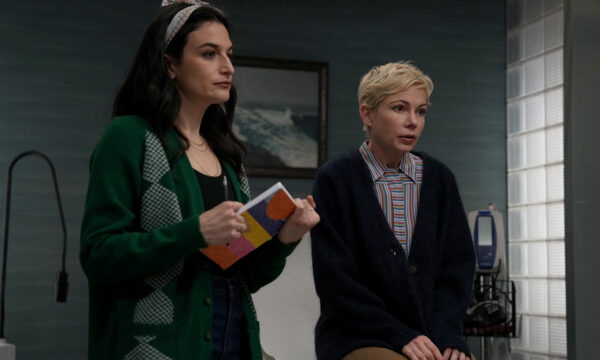


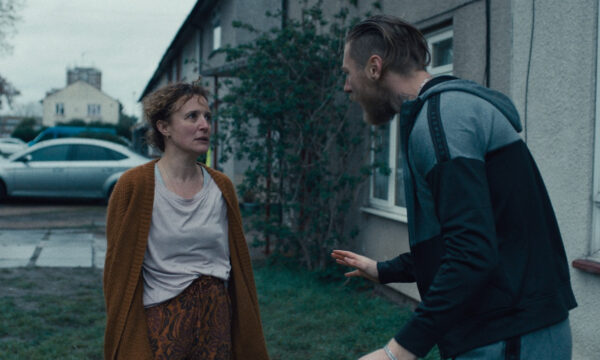










Facebook
Twitter
Instagram
YouTube
RSS